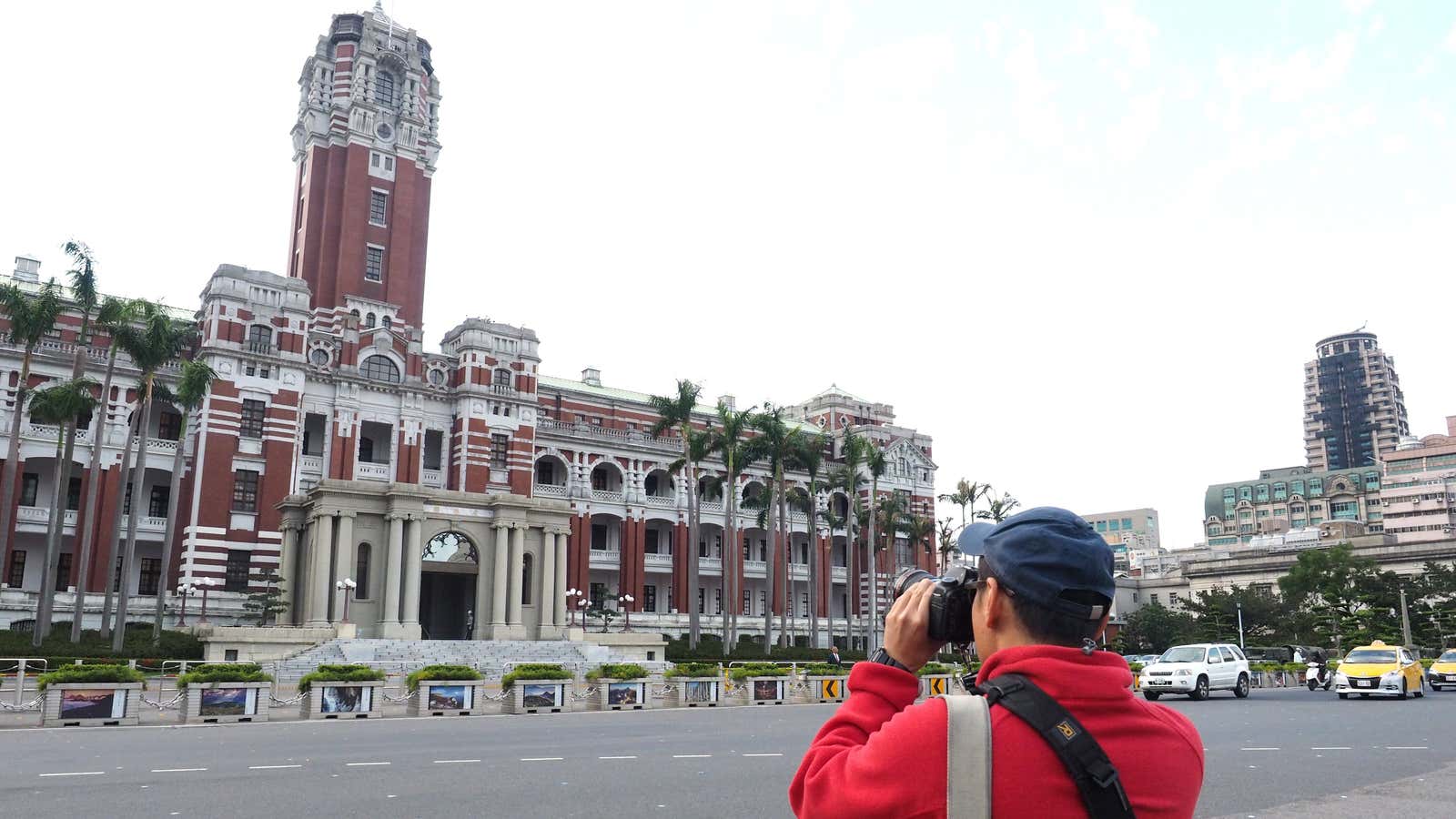Taipei, Taiwan
Just days after a scandal involving attempts by Chinese universities to influence academic discussion in Taiwanese classrooms was uncovered, the arrest of an alleged Chinese spy who studied here has put Beijing’s espionage efforts back in the spotlight.
While spy scandals are not uncommon in Taiwan, the news has heightened concerns that the island is inadequately prepared to deal with Chinese espionage at a time when relations across the Taiwan Strait are at their lowest point in years.
Taiwanese authorities last week arrested Chinese national Zhou Hongxu, who graduated from Taipei’s prestigious National Chengchi University last year. Zhou is accused of trying to organize a spy ring within Taiwan’s government, including a foreign ministry official. Beijing, meanwhile, has called the detention suspicious given recent controversy that some Taiwanese universities, in a bid to lure Chinese students, have signed agreements to not contradict China’s views on Taiwan’s status.
“The main issue for governmental administrative offices is that civil servants have low awareness [about espionage] and the offices lack their own information security systems to protect them from communist spies,” the Taipei Times reported, citing an anonymous official. “As they have no mechanisms for reporting suspected espionage attempts, the risk of vulnerable civil servants being turned or compromised is substantial.”
The official also said that there are an estimated 5,000 individuals harvesting classified information in Taiwan for Beijing.
Liu Fu-kuo, a research associate at the Center for Security Studies at National Chengchi University, said he thought the estimate of 5,000 Chinese spies in Taiwan was “quite exaggerated,” though he said it was likely that there were more undetected cases similar to Zhou’s. “Chinese who come here for business or to study may occasionally be of use to China’s intelligence apparatus, but categorizing them alongside full-time intelligence agents would be inappropriate,” Liu said.
China has laid claim to Taiwan since the end of the Chinese civil war in 1949, and has vowed to use force if necessary to annex Taiwan. In recent decades, self-ruled Taiwan has evolved from a closed-off dictatorship into a vibrant democracy with little interest in becoming part of China.
China cut off official communication channels with Taiwan last year after newly elected president Tsai Ing-wen skirted Beijing’s demands that she acknowledge its interpretation of the One China principle. Tsai’s presidency followed eight years of relatively warm relations between Beijing and Taipei under president Ma Ying-jeou.
Liu said that given the recent increase in tensions in the cross-strait relationship, it would be natural for there to be more Chinese spy activity in Taiwan.
“Compared with eight years ago, it’s likely that Beijing now has a greater need to understand and grasp the current situation of the Taiwanese government,” he said.
Direct travel links between China and Taiwan were established only eight years ago. With Chinese accounting for one-third of international visitors to Taiwan, it is inevitable that some of these visitors from China will be carrying out intelligence work in areas of interest to the Chinese government, Liu said.
The security official in the Taipei Times report noted that in addition to the government, Taiwan’s military is also a major target for Chinese spies.
A spokesman for the defense ministry referred Quartz to the Mainland Affairs Council (MAC). With regard to the Taipei Times report, the MAC said that Taiwan’s government has never stated figures on the current number of Chinese spies in Taiwan, but that “the Chinese mainland has never ceased to collect military secrets or information vital to the security of our society.” In the face of this sustained threat, Taiwan’s government continues to step up its vigilance, it added.
China has already had success in turning members of Taiwan’s military. The highest-level member of the military to be convicted of espionage is former one-star general Lo Hsien-che, who was initially lured into a “honey trap” while stationed in Thailand and then received payment in exchange for state secrets. Lo was sentenced to life in prison in 2012.
In 2015 four retired Taiwanese military officers and another Taiwanese citizen were indicted for espionage and leaking state secrets, including information about Taiwanese military aircraft and radar systems. The men were recruited by a former Chinese military officer who entered Taiwan as a Hong Kong resident. He paid the men with cash and trips to Southeast Asia. In the same year, Taiwan and China exchanged spies for the first time ever.
High-ranking government officials have also been convicted of spying for China. In 2010 a former official in Taiwan’s presidential office was convicted of passing state secrets to China, and was sentenced to three years in prison.
Liu said Taiwan is currently a divided society, with many Taiwanese supporting the current government, and a substantial number opposed to it. This will continue to provide Beijing with an opportunity to use certain people including businessmen, students, and pro-unification political parties to its own ends.
